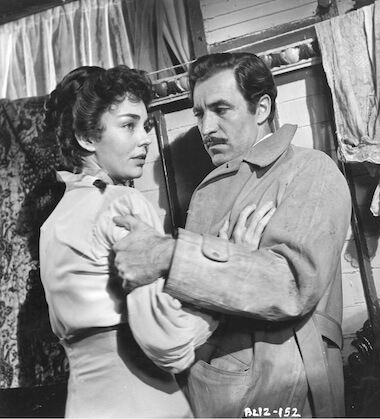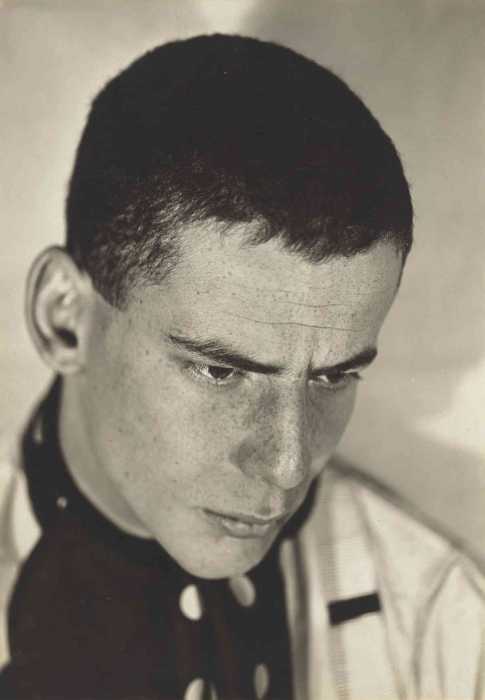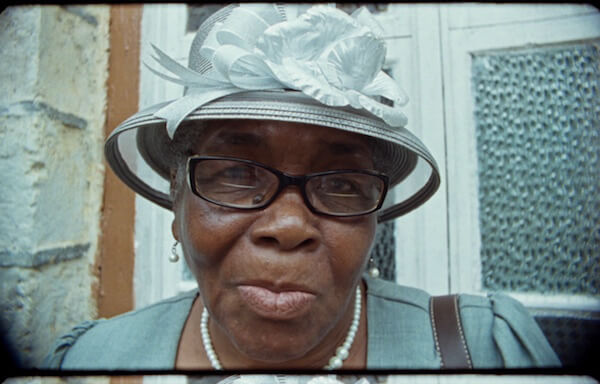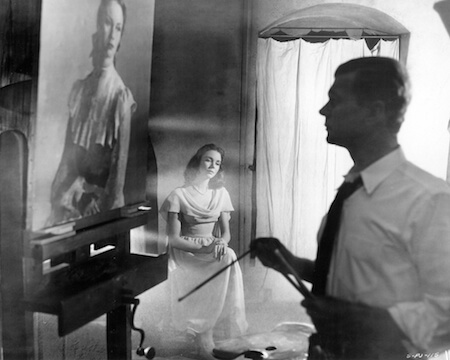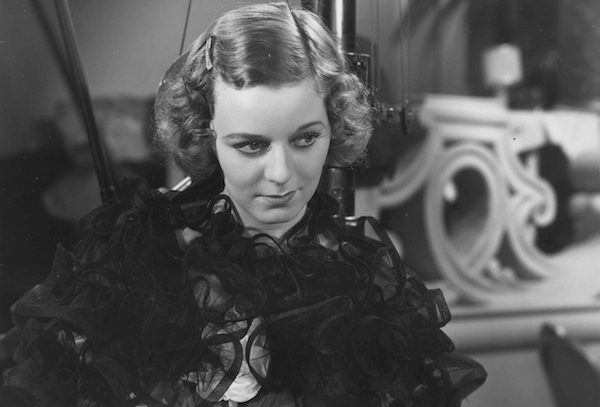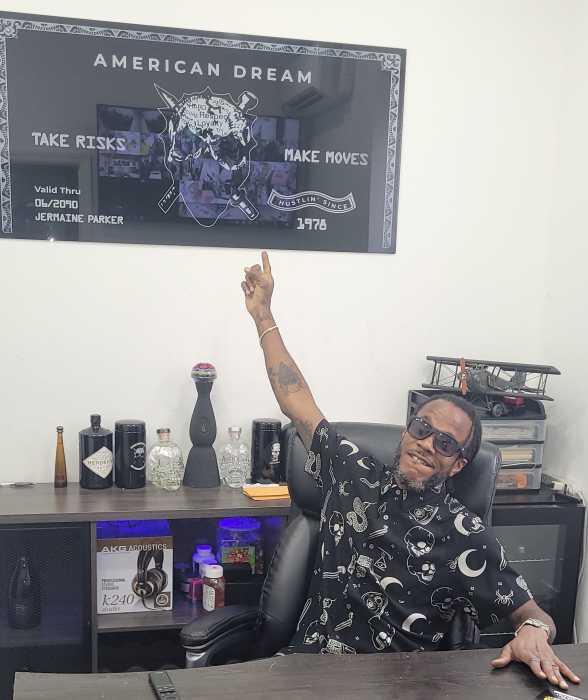Emmanuelle Devos in Frédéric Mermoud’s “Moka,” at the Film Forum through June 27. | FILM MOVEMENT
With her heavy-lidded, slumberous eyes, and wide gash of a mouth, Emmanuelle Devos not only defines that elusive French term jolie laide, but is also one of the most striking presences in contemporary cinema. She has built up an impressive résumé in the last 20 years, working on compelling projects with fine directors, the latest of which, “Moka,” an intense whodunit directed by Frédéric Mermoud, has just opened. In it, she plays Diane, the grieving and haunted mother of a son killed in a car crash, bent on discovering the identity of the driver, who fled from the scene. She takes her obsessive amateur detective work to the limit, meeting up with a sweet, innocent-seeming beautician (Nathalie Baye), who just may have been that heedless driver. The tension mounts, greatly abetted by the absolute commitment and deep humanity of Devos who, even at her most willfully wrongheaded, cannot help but force you to empathize with her sorrow and frustrated rage.
FIAF screens Emmanuelle Devos; MoMA remembers Jennifer Jones
I interviewed Devos, who was in New York because of an eight-film retrospective at the French Institute Alliance Francaise (FIAF), running through July, entitled “Enigmatic Emmanuelle Devos.” In person, she appears much softer than she photographs and is quite reticent and verbally guarded, in marked contrast to the more effusively expressive presence she projects on screen.
DAVID NOH: How did you get involved with this project?
EMMANUELLE DEVOS: I’d actually worked before with Frédéric Mermoud on his first feature film, “Accomplices,” and also a short film, “Le créneau.” He wanted to work with me again and was looking for a good vehicle when he came across this book by Tatiana de Rosnay.
DN: Every parent’s worst nightmare is losing a child. Are you a mother yourself?
ED: Yes, I have two sons, 22 ad 20.
DN: Wow! you started early!
ED: No, I am old. Oh, yes I am!
DN: I think I’m older than you are and you look incredible. How did you see your character?
ED: I think, for me, this movie is a little about revenge and also a little about finding out who the killer is. But I think the most important aspect is how it describes a person who is living in a kind of hell and the process in which she is reborn and brought back to life as a result of this investigation she is conducting to discover what really happened and who is responsible. In a sense, the film is like a road map of this character’s return to life after this tragedy.
Frédéric Mermoud and I are very close friends in life and because of this we were able to talk before making the film about what it was he wanted to do and how my character was to be portrayed. Our friendship is reflected in the final dialogue and the way film actually appears.
DN: For me, the most exciting aspect of the film is your incredible rapport with Nathalie Baye — both of you great actresses, both so different in such different roles.
ED: I think that sometimes it’s easiest when you work with the best. I had never worked with her before but we knew each other in real life. We actually supported the film for the whole process because it took some time to get financing for the film. It was difficult, but we were willing to wait.
Working with her was very agreeable. She has a high very level of professionalism, which makes her easy to work with. She always knows what the right solution is if there’s a technical problem which arises on the set, and it’s an impressive thing to act against someone like that. So it was a great experience.
DN: What do you think happens to your character Diane after the film ends?
ED: It’s actually something I’ve thought about a lot. I think that she reaches a kind of moment that is more calming for her and begins to recover from what happened. Although she may never forget that pain, she’s able to go beyond it and begin to live again. Some people who have had an experience like this are never able to recover or go beyond what they experience at that moment of the tragedy. I think it depends a great deal on a person’s character and level of energy but with Diane I think she’s someone who will be able to live again. I think she’s now armed properly to be able to do that now and deal with what life brings.
DN: How did the film, with its challenging subject, do in your country? I’ve always loved French cinema, and a big reason is the strong presence of women, always, like you two. It’s so different from American movies, now largely aimed at 12-year-old boys — disgusting, really.
ED: [Chuckles.] Yes, yes. And I think the film wasn’t an enormous success, but it was pretty successful.
DN: You’ve done so many wonderful movies. Are any particularly special to you?
ED: Ouf! [Looking through the FIAF program brochure.] It’s a really hard question to answer because certain films are notable, which marked a change in my career like “Read My Lips.” When I look back, the films I made with Arnaud Desplechin represent something very different and important in my career. “Just a Sigh,” with Jérôme Bonnell, “Violette.” These are films that marked me more than some of the others, but it’s really a difficult thing to do, choosing which ones.
DN: I know so little about your personal life. I understand your mother, Marie Henriau, was also an actress. Would I have seen her in anything? Was it difficult going into the same profession? Did you go to school for it?
ED: She was really more of a stage actress. But she was in the last Antoine Doinel movie for Francois Truffaut, “Love on the Run,” and had one very nice scene.
She’s retired now, and liked the fact that I wanted to act, too. But I never went to school for it.
I really love acting on the stage and do quite a bit of it. Last year, I did Chekhov’s “Platonov,” and I just did the most recent play by Yasmina Reza, “Bella Figura.” It was on tour, but is coming back to Paris in November and December.
DN: How do you feel about this tribute here?
ED: [Laughs a little.] Actually, I feel very touched. I don’t know quite what to say, but yes, it is an honor. I also had one at the Festival in Angers.
Coming up for Devos is another film, “No. 1,” which she just finished shooting with director Tonie Marshall, to be released in France this fall. In it, she co-stars with Carole Bouquet, Sami Frey, and Suzanne Clément.
Jennifer Jones and David Farrar in Michael Powell’s “Gone to Earth.” | MUSEUM OF MODERN ART
Ethereal Jennifer Jones, a gleamingly glamorous Hollywood presence, could not be more different from Devos. But the very mention of her euphonious studio-concocted name — she was born Phyllis Isley — is enough to make serious film fans smile at the memory of her lithe apple-cheeked loveliness and often unnerving complexity. Although at first glance, she seemed the epitome of the fresh young American girl from a more innocent era, she rarely played them on the screen. After languishing in B movie Westerns, she was discovered by — and later married to — producer David O. Selznick, who obsessively guided her career, alternating the roles of saint and sinner for her.
She’s also getting a festival this month with MOMA’s “Becoming Jennifer Jones,” about her evolution as an actress and star, which really started with her Oscar-winning breakthrough, “The Song of Bernadette” (1943). There, she’s radiant, but some lesser-known efforts deserve to be mentioned. In the painfully botched adaptation of “Tender is the Night,” she is easily the best thing in it, doubtlessly imbuing F. Scott Fitzgerald’s on-the-brink-of-madness Nicole Diver with much of her own legendary personal insecurity and mania.
But the real “get” of the series and one of her very finest films (and performances) is Michael Powell’s “Gone to Earth,” a wildly beautiful Technicolor fable about a Shropshire gypsy lass who gets along better with forest animals, like the fox which is her special pal, than humans. Her elemental nature is put to a severe test when a local squire (sexy David Farrar) and a minister (Cyril Cusack) both come courting her, tearing her idyllically blissful world apart. It’s all so eerily gorgeous and mysterious at the same time — with Jones recklessly scampering through field and stream like a stag, all the while bearing that live fox in her arms — that you may well find yourself just scratching your head, muttering “How the hell did they do that?”
MOKA | Directed by Frédéric Mermoud | Film Movement | Through Jun. 27 | Film Forum, 209 W. Houston St. | filmforum.org
ENIGMATIC EMMANUELLE DEVOS | French Institute Alliance Francaise | 22 E. 60th St. | Through Jul.: Tue. at 4 & 7:30 p.m. | fiaf.org
BECOMING JENNIFER JONES | Museum of Modern Art | 11 W. 53rd St. | Through Jun. 30 | press.moma.org

